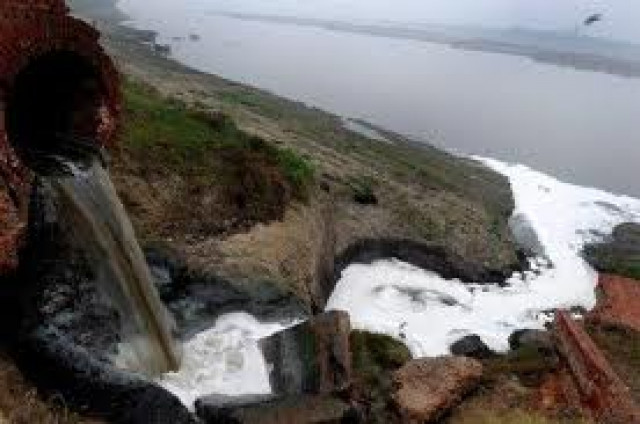Wastewater treatment: Disagreement over tech keeps first plant on hold
French want activated sludge technology, Punjab wants waste stabilisation ponds.

The city’s first waste water treatment plant, to be built in a joint venture of the French and Punjab governments, is on hold as the two sides disagree on the type of plant to build, The Express Tribune has learnt.
The French government, which was offering a soft loan covering 70 per cent of the cost of the project, wants to build a plant that uses the activated sludge process to treat wastewater. But the Punjab government wants the plant to use an older process involving what are called waste stabilisation ponds.
The deadline for the loan offer was June 30, but a French team is to visit the city next month and the Punjab government is hoping to get an extension, provided the technology issue can be sorted out.
The Water and Sanitation Agency (WASA), the Planning and Development Department and the National Engineering and Services of Pakistan (NESPAK) have advised the provincial government that the older technology is more energy efficient and cheaper to run and maintain, so it is the better choice.
“The French have done all the feasibility studies and they are providing the loan, so they are recommending we use the later technology. There is no doubt that activated sludge is the newer technology, but it doesn’t suit us,” said Shakeel Ahmad Kashmiri, the wastewater treatment plant director. “The Punjab government has clearly told the French that this technology is not suitable.”
He said that a plant that uses the activated sludge process would cost about 100 million euros (Rs11.76 billion) to build and then about Rs441 million per year (Rs1.2 million per day) to operate, with that cost rising over time. “To operate the plant, WASA would also need a team of trained people, which we lack,” he said. A stabilisation ponds plant would cost about half that (50 million euros) to build, and about a tenth (Rs45 million per year) to operate, Kashmiri said.
Waste from an activated sludge plant can also be used as a biofuel to generate electricity, which can then be used to run the plant. However, Kashmiri said that the cost of producing the electricity was too high. “If we produce electricity from the sludge it will cost around Rs 18 per unit. WASA is purchasing electricity from LESCO at Rs 10 per unit. The wastewater treatment plant in Islamabad is inactive due to the electricity crisis, so WASA is not in a mood to take this risk here,” he added.
He said that before the agreement with the French consultants for feasibility studies was signed, “we made clear that we only want reliable and sustainable technology that we can easily operate”.
Kashmiri said that the deadline for the French loan offer had passed on June 30, but a French team was arriving in Lahore next month and the Punjab government hoped that the date would be extended.
The loan would be repayable in 20 years at an interest rate of 1.6 per cent, with a three-year grace period. The plant would be installed at Mehmood Booti and treat about 15 per cent of the total wastewater of the city.
Published in The Express Tribune, November 24th, 2011.



















COMMENTS
Comments are moderated and generally will be posted if they are on-topic and not abusive.
For more information, please see our Comments FAQ